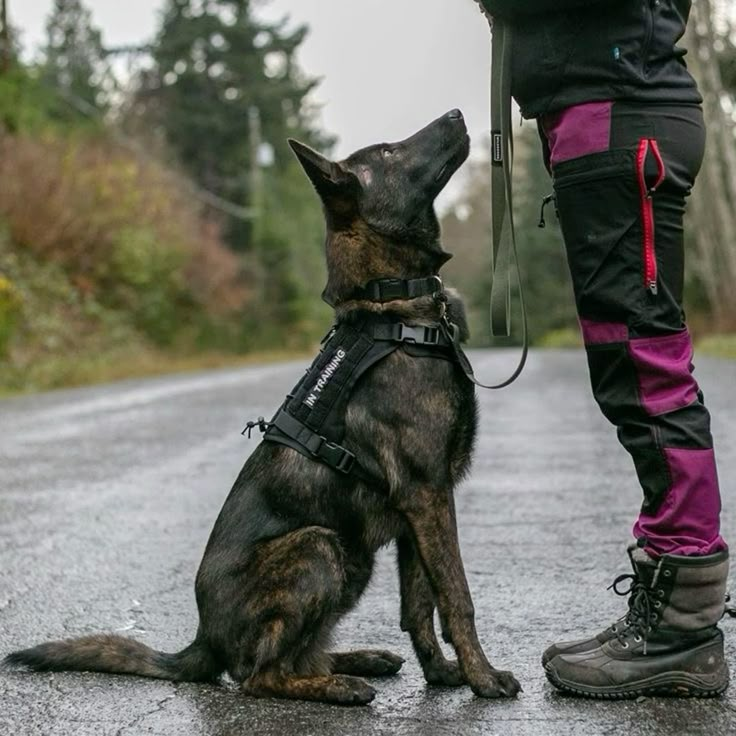For dog owners in the vast and diverse city of Los Angeles, finding trusted dog training services is paramount. The sheer number of options can be overwhelming, making it challenging to discern who truly offers effective, humane, and reliable guidance for your beloved canine companion. Trust in a dog trainer is built on expertise, ethical practices, and a proven track record of fostering harmonious relationships between dogs and their human families.
This guide will help you navigate the landscape of Los Angeles dog training services, pointing you towards the most reliable avenues for finding professionals you can confidently entrust with your dog’s education and well-being.
1. Seek Referrals from Trusted Sources
Word-of-mouth and professional recommendations are often the most reliable starting points when searching for a trusted dog trainer in Los Angeles.
- Veterinarians: Your veterinarian is an excellent first resource. Vets frequently interact with various trainers and often refer clients to professionals they trust for their humane methods and effective results, especially for behavioral issues.
- Local Pet Professionals: Groomers, reputable dog walkers, and local pet store owners often have firsthand experience or hear feedback from numerous clients about trainers in the area.
- Fellow Dog Owners: Talk to friends, neighbors, or people you meet at local dog parks who have well-behaved dogs. Personal success stories are powerful endorsements.
2. Prioritize Certifications and Professional Affiliations
While dog training is not universally regulated, professional certifications are a strong indicator that a trainer has met rigorous standards of knowledge, skill, and ethics.
- CPDT-KA (Certified Professional Dog Trainer – Knowledge Assessed): Issued by the Certification Council for Professional Dog Trainers (CCPDT), this requires extensive experience, client references, and passing a comprehensive exam.
- KPA CTP (Karen Pryor Academy Certified Training Partner): Graduates of the Karen Pryor Academy undergo intensive hands-on training and demonstrate proficiency in positive reinforcement techniques.
- CDBC (Certified Dog Behavior Consultant): Awarded by the International Association of Animal Behavior Consultants (IAABC), this certification is for professionals specializing in complex behavior problems.
- Professional Organizations: Membership in organizations like the Association of Professional Dog Trainers (APDT) often signifies a commitment to continuing education and ethical practice.
3. Scrutinize Training Methodologies
A trusted trainer will always prioritize humane, science-based methods that promote a positive relationship between you and your dog.
- Positive Reinforcement: Confirm they primarily use reward-based methods (treats, praise, toys, play) to teach and reinforce desired behaviors. This approach is proven to be effective and builds confidence.
- Avoid Aversive Tools/Methods: Be wary of trainers who rely on force, intimidation, or tools like choke chains, prong collars, or e-collars (shock collars) as primary training instruments. These methods can suppress behavior but often create fear, anxiety, and can damage your bond with your dog.
- Transparency: A trusted trainer will be open and clear about their methods and philosophy.
4. Read Online Reviews and Testimonials
Online platforms provide a wealth of information from past clients.
- Google Reviews & Yelp: Look for trainers and companies with a high volume of consistently positive reviews (e.g., 4.5 stars and above). Pay attention to detailed testimonials that describe specific successes and the client’s overall experience.
- Specialized Pet Service Sites: Websites like Thumbtack, Wag!, or Rover often feature trainer profiles with client ratings and reviews.
- Look for Consistency: A few good reviews are nice, but a pattern of positive feedback over time indicates reliability.
5. Schedule an Initial Consultation
Most reputable and trusted trainers in Los Angeles offer an initial consultation, often free or at a reduced rate. This is your opportunity to:
- Discuss Your Goals: Clearly articulate what you want to achieve with your dog.
- Assess Their Communication: Do you feel comfortable with their communication style? Do they listen to your concerns?
- Observe Their Interaction: If possible, observe how they interact with your dog. Do they seem patient, calm, and knowledgeable?
- Ask Key Questions: Inquire about their experience with your dog’s breed or specific issues, their training philosophy, and the structure of their programs.
Conclusion
Finding trusted dog training services in Los Angeles requires a proactive approach. By seeking referrals from reliable sources, prioritizing certified professionals, understanding their training methodologies, scrutinizing online reviews, and engaging in initial consultations, you can confidently choose a trainer who will empower you and your canine companion to enjoy a harmonious, well-behaved, and joyful life together in the vibrant city of Los Angeles.

